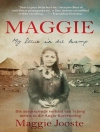In ‘Reed Anthony, Cowman: An Autobiography, ‘ Andy Adams presents a vivid narrative that immerses readers into the rugged world of cattle ranching in the American West during the late 19th century. Employing a straightforward yet evocative literary style, Adams combines authenticity with rich detail, depicting the trials and triumphs of his protagonist, Reed Anthony. This semi-autobiographical work serves not only as a personal account but also as a cultural document, reflecting the challenges of ranch life, the relationship between humans and nature, and the transformative power of the American landscape in post-Civil War society. Andy Adams, born in 1870, lived through the rise of cattle ranching and its cultural significance in the United States. His firsthand experiences as a cowboy and ranch manager enabled him to portray the creeds and characters of the era with remarkable insight and fidelity. Drawing on his own life and the social realities of his time, Adams seeks to honor the rugged dignity of those who shaped the American frontier, blending historical accuracy with compelling storytelling. For readers interested in Western literature, ‘Reed Anthony, Cowman’ stands as a quintessential text that delves into the heart of cowboy culture and the struggles of frontier life. This engaging autobiography is highly recommended for anyone seeking a deeper understanding of America’s pastoral legacy and the indomitable spirit of its pioneers.
Sobre el autor
Andy Adams (1859–1935) was an American writer known for his contributions to Western literature, particularly the authentic portrayal of cowboy life in the late 19th century. His most acclaimed work is ‘The Log of a Cowboy’ which is widely regarded as one of the most authentic accounts of cowboy life. Adams’ writing style is characterized by a colloquial voice that immerses readers into the culture and hardships endured by cowhands. In ‘Reed Anthony, Cowman: An Autobiography’ (1907), Adams employs a semi-autobiographical narrative, drawing from his own experiences as a cattleman to create a protagonist whose life epitomizes the era of the open range. Adams’ work is crucial in chronicling the transformation of the American West from untamed wilderness to agricultural and urban landscapes. His emphasis on factual storytelling, eschewing the overly romanticized versions of the West popular in ‘dime novels’ of the time, sets Adams apart as a historian of Western life as much as a novelist. Although not as widely read as contemporaries like Zane Grey, Adams’ literary contributions provide invaluable insights into the lives and ethos of cowboys, making his works subject to scholarly interest in the field of Western American history and literature.












